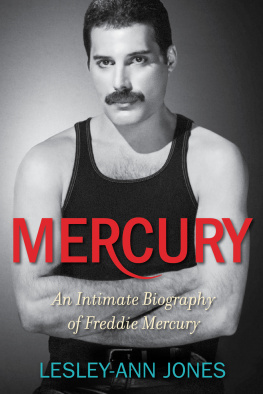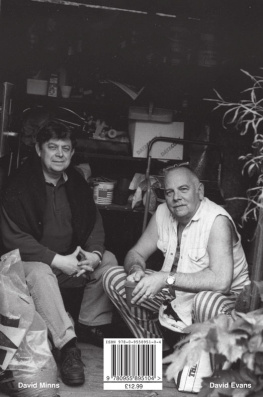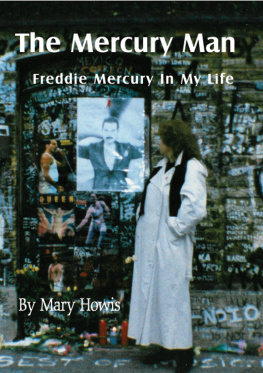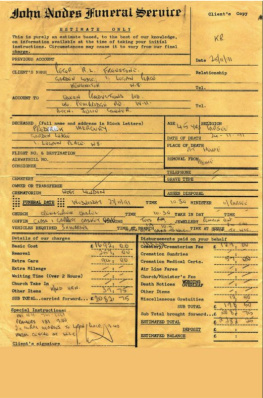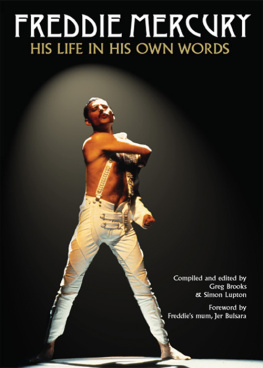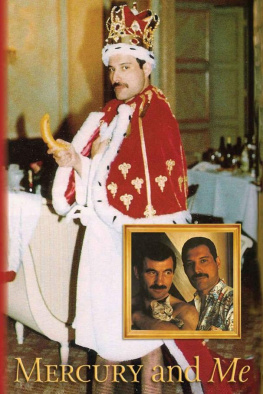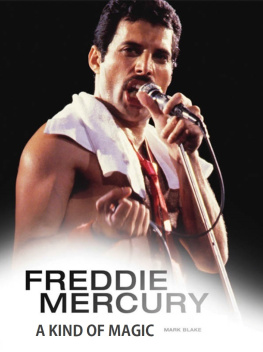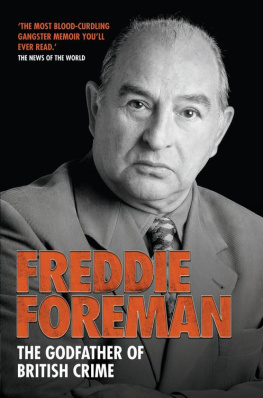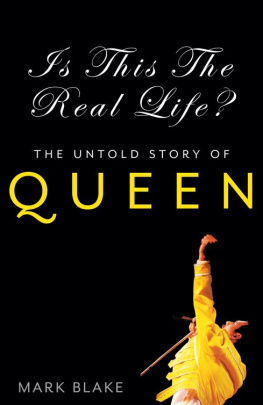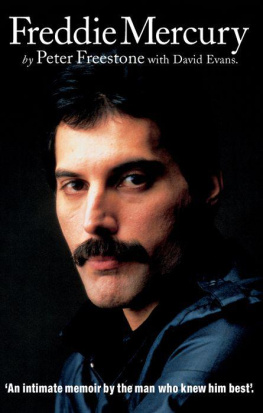Freddie Mercury: The Definitive Biography
Lesley-Ann Jones

www.hodder.co.uk
First published in Great Britain in 2011 by Hodder & Stoughton
An Hachette UK company
Copyright Lesley-Ann Jones 2011
The right of Lesley-Ann Jones to be identified as the Author of the
Work has been asserted by her in accordance with the Copyright,
Designs and Patents Act 1988.
All rights reserved. No part of this publication may be reproduced,
stored in a retrieval system, or transmitted, in any form or by any
means without the prior written permission of the publisher, nor be
otherwise circulated in any form of binding or cover other than that
in which it is published and without a similar condition being
imposed on the subsequent purchaser.
A CIP catalogue record for this title is available from the British
Library
eISBN 978 1 444 73370 9
Hodder & Stoughton Ltd
338 Euston Road
London NW1 3BH
www.hodder.co.uk
For my mother and father
For Mia, Henry & Bridie
Contents
Introduction

Montreux
We didnt write it at the time. We took notes, as journalists did in those days, by committing quotes to memory, then making our excuses and heading for the bathroom, where wed scribble into our notebooks before the booze set in. We had tape recorders, sure, but you couldnt use them. They were conversation-killers, especially if you found yourself somewhere compromising. Where it wasnt cool to be up-front about being a hack.
So we a couple of scribes and a snapper had broken rank from the media-fest raging up the road at the conference centre, and had slipped out for a quiet pint at the only pub on Montreuxs main drag. Intimate little place, the Blanc Gigi, they called it: the White Horse. Freddie happened to be in that night, with a couple of tight-slacked friends who might have been Swiss or French. This typically English pub was a favourite haunt of his, which I think we must have known. Freddie didnt need a bodyguard. He needed cigarettes. The new bloke from the Express was an addict, he always carried four packs. Nights were long for young showbiz reporters. We came prepared.
This was not the first time Id met Freddie. Wed been in each others company several times before. A rock fan since childhood Id met Bowie when I was eleven, and Hendrix died on my birthday in 1970 (had to be a sign; wasnt everything?) I was introduced to the thrilling, complex music of Queen the summer I left school by sisters Jan and Maureen Day, fans from Aldershot. This was when I found myself travelling alongside them on a wheezing coach bound for Barcelona and the beaches of the Costa Brava. When everyone had a guitar, and a plectrum that had belonged to George Harrison. No amount of finger stretches was going to get the instrument to weep for me.
Never destined to be a Chrissie Hynde or a Joan Jett, from the early 1980s until around 1992 I reported on rock and pop for the Daily Mail , the Mail on Sunday , its supplement You magazine, and The Sun . It was as a rookie journalist at Associated Newspapers that I first encountered Queen. I was sent to interview Freddie and Brian at Queens Notting Hill offices one day in 1984, and a lopsided acquaintanceship was struck: they called, you came. The years that ensued now seem surreal. The business was simpler then. Artists and journalists routinely flew together, limod together, stayed in the same hotels, ate at the same tables, painted far-flung cities the colours of hell.
A precious few of those friendships got to last.
Things hardly ever happen that way today. Too many managers, agents, promoters, publicists, label folk and hangers-on, all on points. If theyre not, they pretend. Its in their best interests to keep the likes of me behind the barrier. Back then, we cheeked our way in everywhere with or without the laminate or an Access All Areas pass. We sometimes even hid them, just to keep our hand in. Blagging was part of the fun.
I had watched from the wings as Queen performed at Wembley for Live Aid the previous year I wouldnt get a look-in today and was invited along to a string of destinations on the Magic tour in 1986. In Budapest, I would attend a private reception in the bands honour at the British Embassy, and would witness their historic Hungarian show behind the Iron Curtain, which was perhaps their greatest live moment ever. I like to think I blended in: just another skinny twenty-something freckle-face who loved rock n roll.
What always surprised me was how much slighter Freddie was than you remembered him. Perhaps it was the diet of nicotine, vodka, wine, cocaine, little appetite for food, and being hyped up as a performer. He was so larger-than-life up there on stage that you expected him to be imposing in real life. He wasnt. On the contrary, he seemed quite small, and endearingly boyish. You wanted to mother him, all the girls did. He aroused the same instincts as Culture Clubs androgynous Boy George, who became the housewives favourite after confessing, if disingenuously, that he preferred a nice cup of tea to sex.
In the White Horse, Freddie was looking around, eyebrows raised, murmuring ciggie in that distinctively clipped and faintly camp voice of his. It struck me that night what a tangle of contradictions he was. That he could be as humble and unassuming away from the stage as he could be arrogant on it. Later on, I heard him mutter pi-pi in a child-like tone, and watched, fascinated, as one of his number toddled him off to the Gents. That was it, I fell for him completely. I wanted to take him home, stick him in a hot bath, get my mum to cook him a roast. Thinking about it now, it couldnt have been that the big-shot rock star was so helpless that he was unable to go to the john alone. Freddie would have been the most vulnerable of targets in a toilet.
Roger Tavener, the Express guy, offered him a Marlboro Red. Freddie wavered before accepting hed have preferred Silk Cut. He watched us from his pitch with vague interest as we sparred with the barflies. Perhaps because we didnt pay him too much attention, he came back for another fag. Where were we staying, then? The Montreux Palace: right answer. Freddie had lived there; hed had his own suite. He and Queen owned Mountain Studios, the only recording complex in this dignified Swiss resort. Mountain was reckoned at the time to be the best in Europe. It was his round now. More of whatever it was wed had before.
After an hour or so: You obviously know who I am, he said, a flicker of recognition in his ebony eyes. Well obviously. He was what we were there for. A few vodka tonics earlier, he might have figured our names. Despatched by newspaper editors to attend the annual entertainment TV festival and Golden Rose Awards (the Rose dOr was at its peak in Montreux in May 1986), we also covered its sidekick, a widely televised rock gala that was a thinly-disguised excuse for the media to misbehave.
We thought he wouldnt want to be bothered, but he was the one who seemed keen to talk. He didnt care for hacks as a rule. Having been ridiculed and misquoted in the past, he trusted few of us. David Wigg at that time the Daily Express showbusiness editor, and also in town was a good friend of Freddies. More often than not it was he who got the scoop.
We were getting too close. Throwing away, we knew, the chance of an official interview. Come morning, Freddie would have sussed us. More to the point, his management and the publicists would have too. Having overstepped the mark, as theyd perceive it, wed probably never get near him again. This was his bar, his territory. Even so, he seemed vulnerable and edgy, far removed from the star we thought we knew.
Next page

